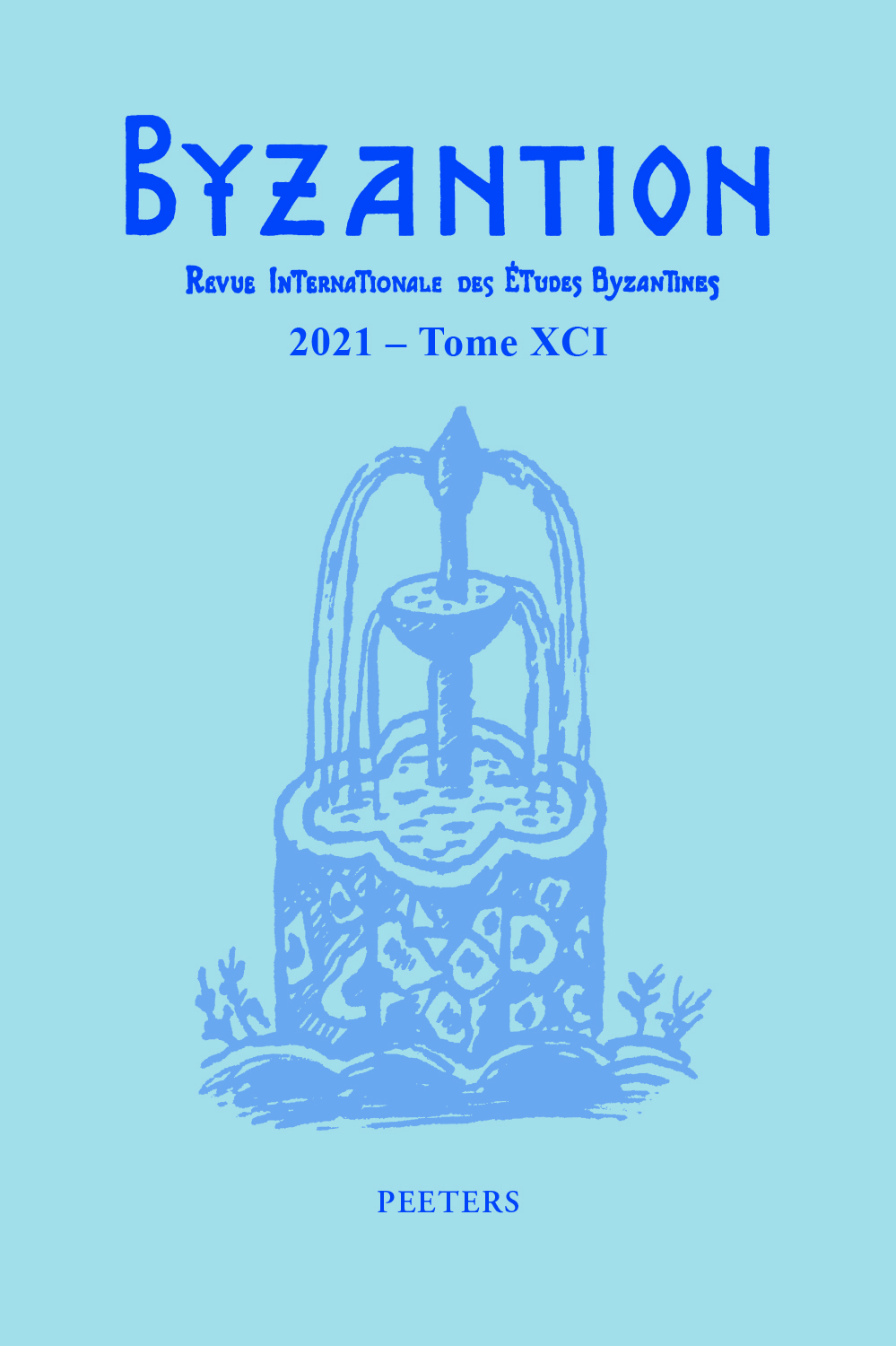 previous article in this issue previous article in this issue | next article in this issue  |

Preview first page |
Document Details : Title: Nikephoros Ouranos, Eunuchism, and Masculinity during the Reign of Emperor Basil II Author(s): MASTERSON, Mark Journal: Byzantion Volume: 89 Date: 2019 Pages: 397-419 DOI: 10.2143/BYZ.89.0.3287077 Abstract : Discussions of Byzantine eunuchs have generally relied on accounts that speak directly of a man’s eunuch status. This has meant that scholars have constructed discussions of eunuchs from a destabilizing mix of highly critical and highly laudatory languages. This article proposes to de-emphasise the languages of difference, i.e., exclusion or excessive praise, and to consider how the eunuchs and the bearded, i.e., the intact, got along with one another as men. Discussing instances from Byzantine historiography and epistolography and employing Eve Kosofsky Sedgwick’s notion of reparative reading, we focus on the life and career of Nikephoros Ouranos. He was one of emperor Basil II’s leading generals and hitherto not identified as a eunuch in the secondary literature. Nikephoros Ouranos is a good personage to use for considering how eunuch and bearded got along at a time in which they were highly integrated with one another in the government of the empire. Approaching the sources from a standpoint prioritising the fact that bearded and eunuch could perform many of the same roles and called each other men helps us develop an understanding of Byzantine elite masculinity that moves beyond dichotomies that speak more of rhetorical intent than quotidian realities. Scholarly conceptions of Byzantine elite masculinity, at least during the time of the Macedonians (ninth to eleventh centuries), need to move beyond the Classical model of dominating and penetrative masculinity, which appears to be less relevant for understanding this later time. Considering eunuch and bearded in this way is one way to make this move. Manhood and masculine authority frequently appear independent of any necessary masculine bodily configuration during these centuries. |
|


